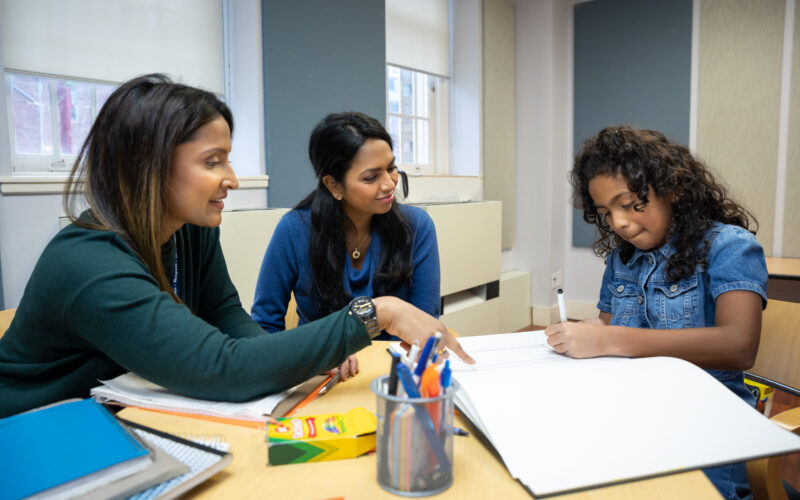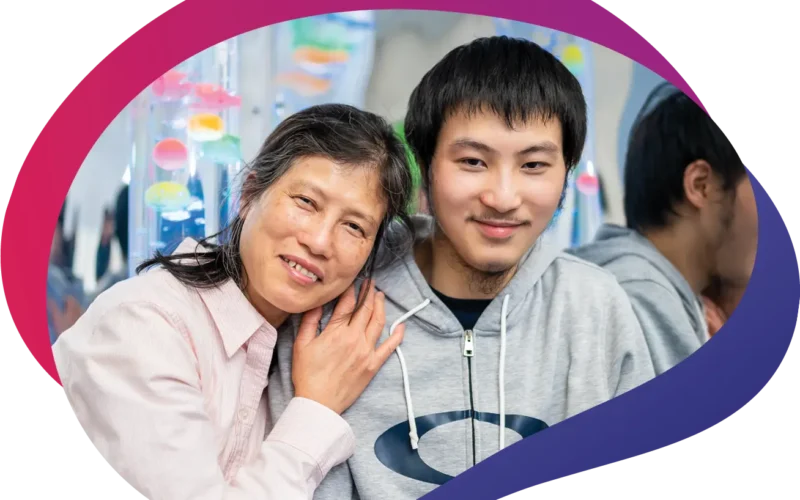It’s Speech and Hearing Month, a time to celebrate the power of communication!
To highlight this important awareness month, we caught up with Olivia Hagemeyer, Manager of Children and Youth Services and the Augmentative Communication & Writing Aids Program at Surrey Place. Read on to learn more about her rewarding work, in addition to the work of our speech-language pathologists, communicative disorders assistants and audiologists.
1. Surrey Place: Can you tell us about your role and what you do at Surrey Place?
Olivia: I have worked at Surrey Place since 2004 as a Speech-Language Pathologist and Manager. As a Manager in the Children & Youth and Augmentative Communication & Writing Aids programs, my role involves developing, improving and achieving outcomes in clinical services to meet the needs of Surrey Place clients and families. The most rewarding part of my job is hearing from our clients, caregivers and other professionals about the meaningful impact of the work we do!
2. Surrey Place: Why are speech-language pathology and audiology important?
Olivia: Many of our clients struggle with significant communication challenges that are barriers to them reaching their true potential. Families are often very concerned and need help to figure out where to start. The work of our speech-language pathologists, communicative disorders assistants and audiologists at Surrey Place is vital to improving the long-term communication health of our clients. Clinicians can assess speech, language and hearing challenges and identify tools and strategies that can be implemented to help work on important skills. The goal is to get clients and their communication partners integrating these skills into their daily routines and using them wherever they go.
3. Surrey Place: What is AAC? How can it help with communication?
Olivia: Augmentative & Alternative Communication (AAC) encompasses the communication methods used to supplement or replace speech or writing. AAC includes signs, picture symbols, speech-generating devices and written text. Clinicians try to introduce these methods with clients of all ages who have delays in speech and language development to give them a consistent and reliable way to communicate. There are many benefits to using AAC, including improving social interactions, increasing participation and promoting independence!
4. Surrey Place: Last question, what are some ways we can work on communication skills at home?
Olivia: The work of our clinicians focuses on helping clients and families to improve communication skills beginning at home. We look at how to incorporate natural language learning opportunities during everyday routines and interactions. Clinicians work with caregivers to identify activities and tasks that are motivating for the client and encourage lots of practice and repetition. Some easy ideas are reading a book together each evening, playing fun turn-taking games as a family on the weekend, or preparing a favorite afternoon snack.
Surrey Place: Thanks for answering our questions today!
To find out if our services are right for you or your child, contact us at 1-833-575-5437 for children under 18, or 1-855-372-3858 for adults aged 18 or older.
Also, be sure to follow us on Facebook, Twitter, Instagram, YouTube and LinkedIn and subscribe to our newsletter to stay connected with us!


